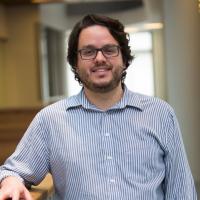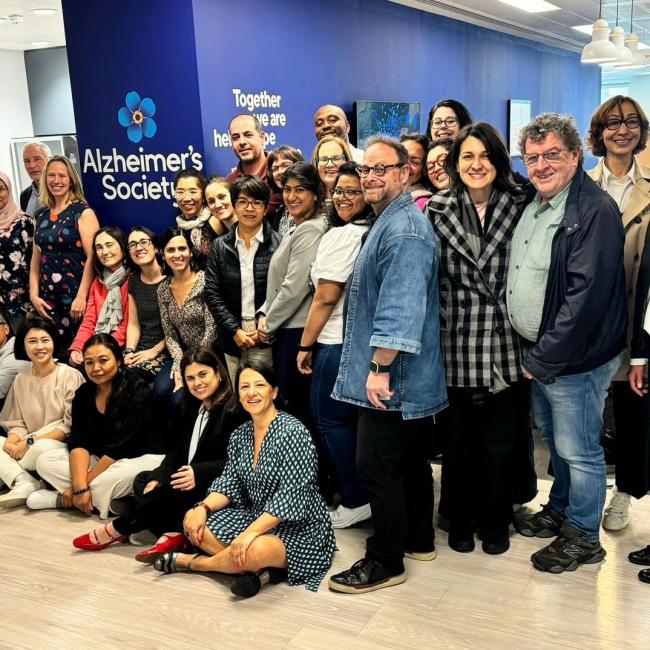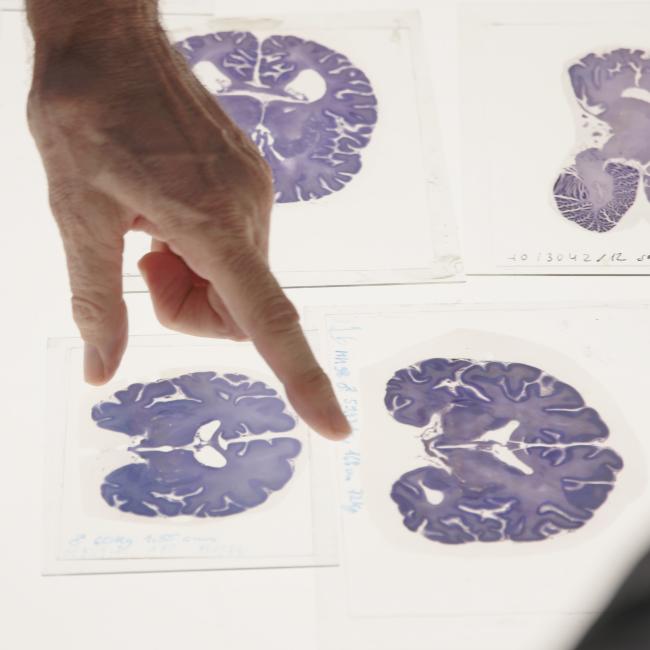Dr Serggio Lanata Named an Inaugural UCSF School of Medicine Population Health and Health Equity Scholar
Dr Lanata will use mapping software to study how geographic vulnerability affects brain health.
Serggio Lanata, MD, MS, Assistant Professor of Clinical Neurology at the University of California, San Francisco (UCSF) and Global Brain Health Institute (GBHI) faculty is an inaugural recipient of the 2019 UCSF School of Medicine Population Health and Health Equity Scholar Award. The prize provides Dr Lanata with pilot funding for his research in underserved and underrepresented communities in San Francisco. The study will map people’s social determinants with their brain health and shed light on pressing healthcare needs and priorities in the city.
Congratulations on being named an inaugural UCSF School of Medicine Population Health & Health Equity Scholar. What is the focus of your project?
My proposal is around mapping and visualizing vulnerabilities that exists across different neighborhoods in San Francisco. San Francisco is a relatively small city; only seven miles by seven miles and the second densest city in the country after New York City I think. People are surprisingly segregated across neighborhoods, and with that segregation comes marked neighborhood differences across different social determinants of health. These life-influencing factors impact people differently across the city, making some groups more vulnerable than others.
This project will use mapping software to identify areas in San Francisco that are most vulnerable according to a number of social determinants that we know are relevant to brain health. Then, I’ll overlap those findings with a map that shows where our current research participants are coming from in the city. This overlap will highlight the regions that are underrepresented in our research projects at the UCSF Memory and Aging Center (MAC). If there is a highly vulnerable region that we're not recruiting from, we can refocus our outreach efforts to that region.
What types of research projects do recruits of the MAC join? Any links to your study?
There are three main research projects at the MAC. A large one that I’m most involved in is our Alzheimer's Disease Research Center. We also have a project that studies the frontotemporal lobar degeneration spectrum of diseases, including frontotemporal dementia, and a large healthy aging project. I’ll be leveraging these projects and bringing in more vulnerable and underrepresented individuals to participate in them. Once enrolled, I’ll run a questionnaire with them that assesses vulnerability at an individual level. It will have very specific questions such as asking about food security, financial strain, safety at home and in their neighborhood, exposure to violence, etc. These type of questions will allow me to objectively assess a person’s vulnerability at different times in their lives. Once we have enough participants to make sense of the data, I’ll assign a vulnerability level to them and then ask, “how does this vulnerability level influence their brain health today?” We can understand this through different mechanisms at the MAC. We have MRIs of participants, blood markers of inflammation, neuropsychological assessments, PET imaging, and other biomarkers to look at. I'm hoping to try to link all the data we are already collecting with a person’s vulnerability.
Much of the work we've done in the past three years is to establish relationships in the community. This is where we will carry out some of the initial conversations with people who take part and we will also do the evaluations in community centers. I feel that we've laid strong groundwork to start developing this project.
What are your long-term hopes and goals for this research?
My hope is that that the vulnerability assessment we create for San Francisco can be used in other big cities. It's a very urban assessment. A long-term goal would be creating collaborations across cities in the US and internationally. The GBHI Vulnerable Populations and Social Determinants Interest Group, composed of Atlantic Fellows for Equity in Brain Health, would be a good group to start thinking about this international effort. The Atlantic Fellows are from countries across the globe, so there’s great potential for collaboration.
Down the road, a long-term goal would be that this work could influence policy in San Francisco. If we're showing important brain health outcomes in highly vulnerable groups, it adds to the conversation that already exists around social determinants of health in the city.
I hope results from this work will change people’s thinking a little bit. To me, that's the most inspiring type of research: doing work that you feel may have a palpable impact on society.
How do any aspects of this study link to your Peruvian origins, if at all?
I think growing up in a country like Peru, where social inequities across different domains are so blatant, had an impact on me. Then after living in the U.S. for years and going back home, the social reality of my country felt even more desperate. Inevitably, you start telling yourself, “this is wrong.” And at first your response is something like, “somebody has to do something about this”. But if the discomfort sticks in your mind long enough, you start thinking that that somebody could be you, and that no effort is too small. I think I'm leaning towards trying to be part of the solution now, and I’m so grateful for my colleagues at the MAC and GBHI for inspiring me and enabling me to do this work. I also recently received an awesome endowment that supports my work in this area, and that’s also incredibly inspiring too.
If you could wave a magic wand to influence how national science institutions define diversity, what would be your wish?
I think the definition of diversity in clinical research should go far beyond race and ethnicity. If as a researcher your only marker of diversity is race and ethnicity, then your research findings will be linked to those races and ethnicities, and this carries the risk of perpetuating the social inequities we’re trying to address. In other words, if you find differences in health outcomes between racial groups, for example, and you haven’t collected data on their living conditions and social determinants, then you end up associating these outcomes with race, not their living conditions. This carries the risk of perpetuating false ideas of biologically driven racial differences in health outcomes.
How does this work connect to GBHI's larger vision and aims around equity?
I think this work is intimately tied to promoting social equity. Not just health equity, but social equity. If you're living in vulnerable conditions that shape a certain life trajectory that puts you at risk of brain disease, and this can be shown with data, then I think this could be a call for action on a policy level. If you're in charge of city government and receive data showing how certain social determinants affect people's brain health, this would be a strong motivator, I hope, to do something structurally to create equity across our neighborhoods. Nothing impacts a person’s quality of life and productivity more than his or her neurological health. The city of San Francisco is already mindful of the impact of social determinants on other health conditions, but I don’t think brain health is a big enough priority yet.
Are there threads of this work you want to pass on to your children?
I've been thinking a lot about that lately. My children know I'm a brain doctor and they ask me questions about the brain, so I’m hoping I pass on that sense of awe and curiosity to them. This work certainly aligns with what I try to teach in the house too. My oldest is very aware that she is in a school district where many Latino immigrant families live. Many of these kids don't speak English. She sees that English and Spanish speakers start to separate from each other, they don’t hang out. I think that's the beginning of these tribal mentalities that are so strong in this region, the segregation. It happens around language, socially defined racial or ethnic groups, income, etc. This is how people start thinking along the lines of “we're different people because we speak different languages, look different, eat different food…” I talk to my daughters about this, we talk about how these differences happen, how each person is unique, and how despite these differences, there is so much more we have in common.
The UCSF School of Medicine Population Health and Health Equity Scholar Award is the result of a partnership between the UCSF School of Medicine and the Global Brain Health Institute. Applications are judged on the degree to which the proposed work would enhance equity training and engagement of Atlantic Fellows for Equity in Brain Health. As one of five awardees across the UCSF campus, Dr Lanata will work with the Dean’s office around UCSF’s growing emphasis on equity within the community. A similar award will be announced at GBHI’s other founding site, Trinity College Dublin in early 2019.
Authors
Camellia Latta, MLA
Program Director for Alumni Relations & Special Initiatives, GBHI at UCSF
GBHI Members Mentioned

Serggio Lanata, MD, MS
Associate Professor of Neurology




